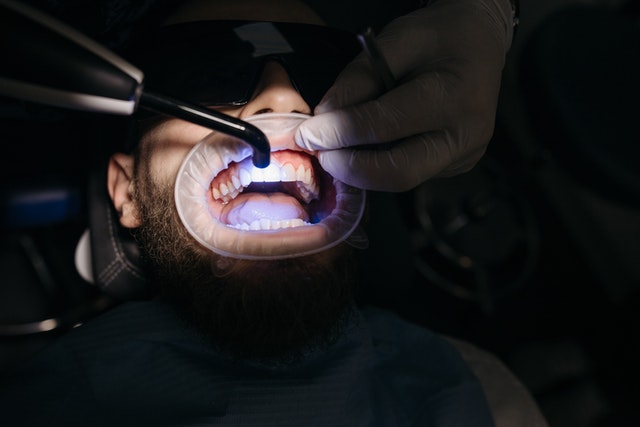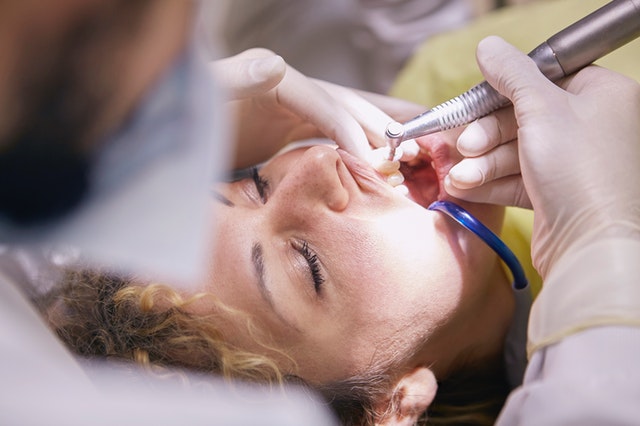
Living with diabetes can be tough. You have to count carbs, monitor blood sugar, manage medications — and that’s just the beginning. With diabetes, you’re also at risk of developing other health problems that range from heart disease to nerve damage. One health concern diabetics must contend with is oral health. While it’s important for anyone to take care of their teeth and gums, diabetics have to be particularly attentive to dental health. In this article I will be describing the easy ways you can avoid diabetic complications from poor oral hygeine.
Types of Complications
Diabetics are at an increased risk of developing serious dental problems. When diabetes isn’t managed fully, the blood glucose that’s naturally present in saliva increases to an unhealthy level. The high level of glucose in a diabetic’s saliva promotes the formation of plaque. Eventually, plaque buildup can cause gingivitis and, later, periodontitis. Periodontitis, or gum disease, is marked by a buildup of bacteria in the gums and can lead to deterioration of the gums and teeth, including tooth loss.
Salivary blood glucose may also cause thrush, a type of yeast infection that occurs in the mouth. Thrush is characterized by white lesions on the tongue and inside of the mouth. If left untreated, these painful lesions can spread to the throat and result in difficulty eating and swallowing.
Prevention Techniques
Thankfully, preventing oral health problems isn’t hard when you start early. The most important thing is ensuring your diabetes is under control. Test blood sugar at least three to four times daily, as well as any time you suspect your blood sugar might be off. Excess blood glucose affects the saliva and makes achieving a healthy mouth much harder.
Once your diabetes is well-managed, oral health care looks like anyone’s routine: Brush at least twice daily with a soft-bristled toothbrush, preferably electric, floss at least once daily, and have your teeth professionally cleaned every six months. The American Academy of Periodontology also recommends having your mouth screened for periodontal disease at least once per year.
Treatment Options
Unfortunately, some people don’t learn about the link between diabetes and dental care until they’ve already developed oral health problems. Existing health concerns make maintaining a healthy mouth harder, but there are steps diabetics can take for a healthier mouth.
If your teeth are misaligned, it’s easier for bacteria to hide in hard-to reach places. And this presents extra problems for those with diabetes. Teeth straightening is the best way to eliminate this issue. Your dentist can determine whether you’re a candidate for braces or clear aligners; it all depends on the severity.
If you have dentures, take extra care to keep them clean. Dentures can harbor bacteria that contribute to gum disease and oral thrush. According to the American Dental Association, dentures should be cleaned at least once per day by brushing away food particles, removing adhesive, and soaking the dentures in a cleansing solution. Dentures that fit poorly may also cause oral sores that are slow to heal in diabetic patients, so fit concerns should be promptly addressed with your dentist.
Other Ways to Improve Health
Believe it or not, exercise has a strong impact on your oral health. Everyday movement can lower stress, decreasing clenching or grinding, and can promote salivation, which we all need to help avoid plaque and bacteria buildup. So in addition to helping keep your waistline and metabolism in check, regular activity can help you keep your mouth healthy. If you need to increase your activity level, consider signing up for a yoga class, starting a walking regimen or working with a personal trainer. And ladies, this is the perfect time to invest in some comfortable workout attire. Seeing real-time results and hitting milestones will give you the encouragement you need to keep up with your regimen.
Don’t underestimate the power of your home either. A disorganized and messy house is a big contributor to stress, and too much stress can lead to poor decision-making, like eating more junk food and staying sedentary. To avoid this, clean and reorganize your home, add a few plants, and stock some healthy snacks and filtered water. Imbuing your home with a healthier vibe will ensure you can commit to a healthier lifestyle.
Final Thoughts
When it comes to keeping a healthy mouth, diabetics face a unique set of challenges. However, it’s possible to achieve great oral health even when you have diabetes. Now that you understand how your diabetes can impact your teeth and gums, you can start making changes to protect your health.
BLOG AUTHOR
Jason Lewis
Jason is passionate about helping seniors stay healthy and injury-free. He created Strong Well to share his tips on senior fitness.





0 Comments